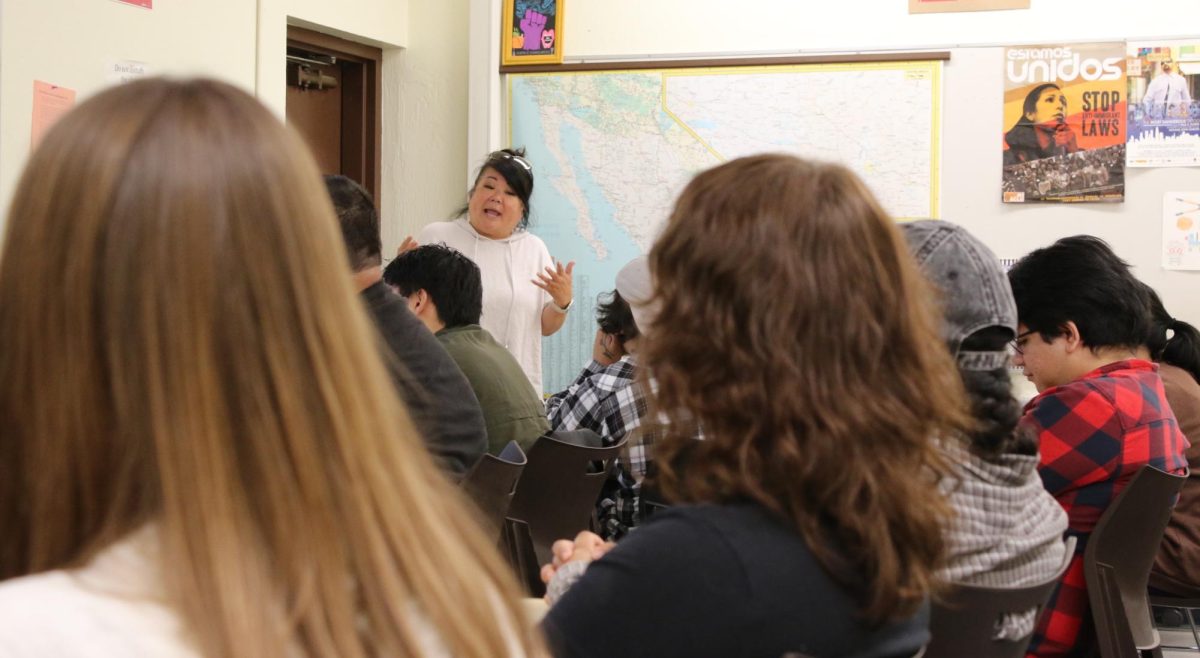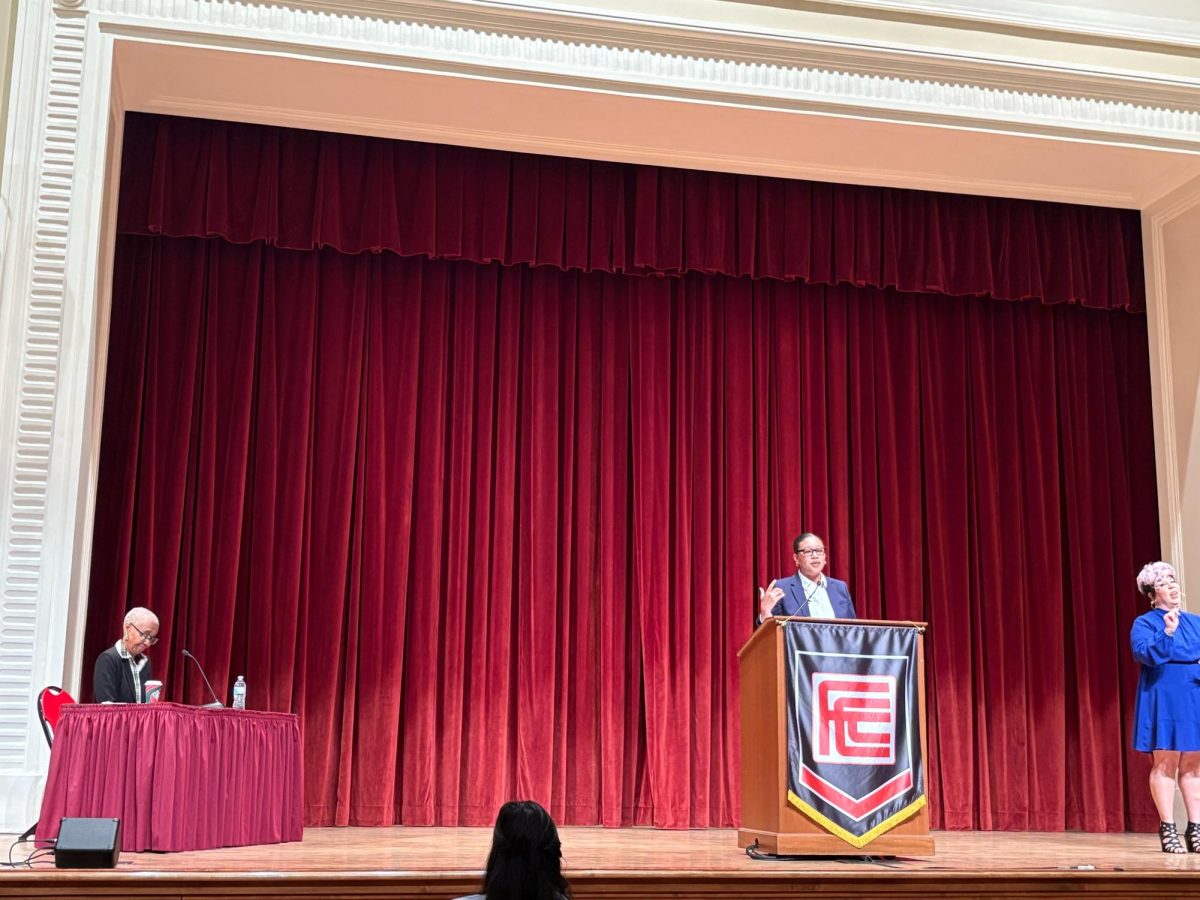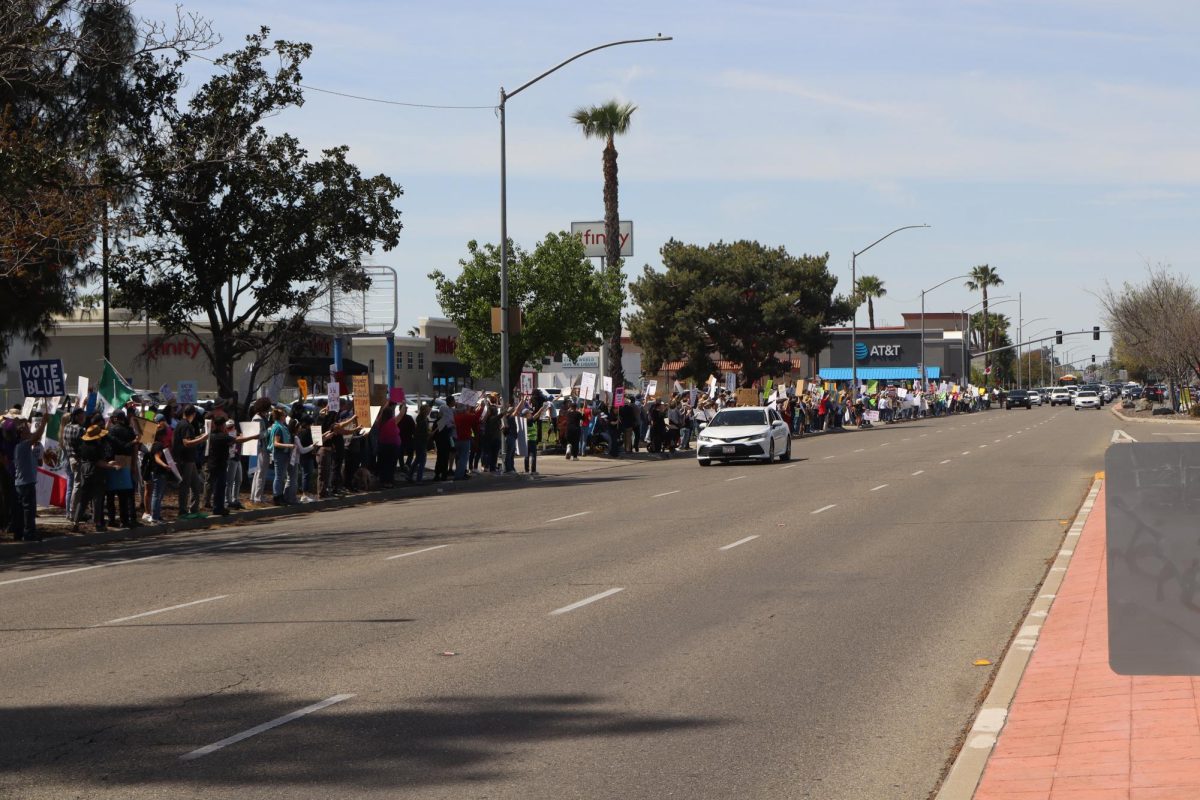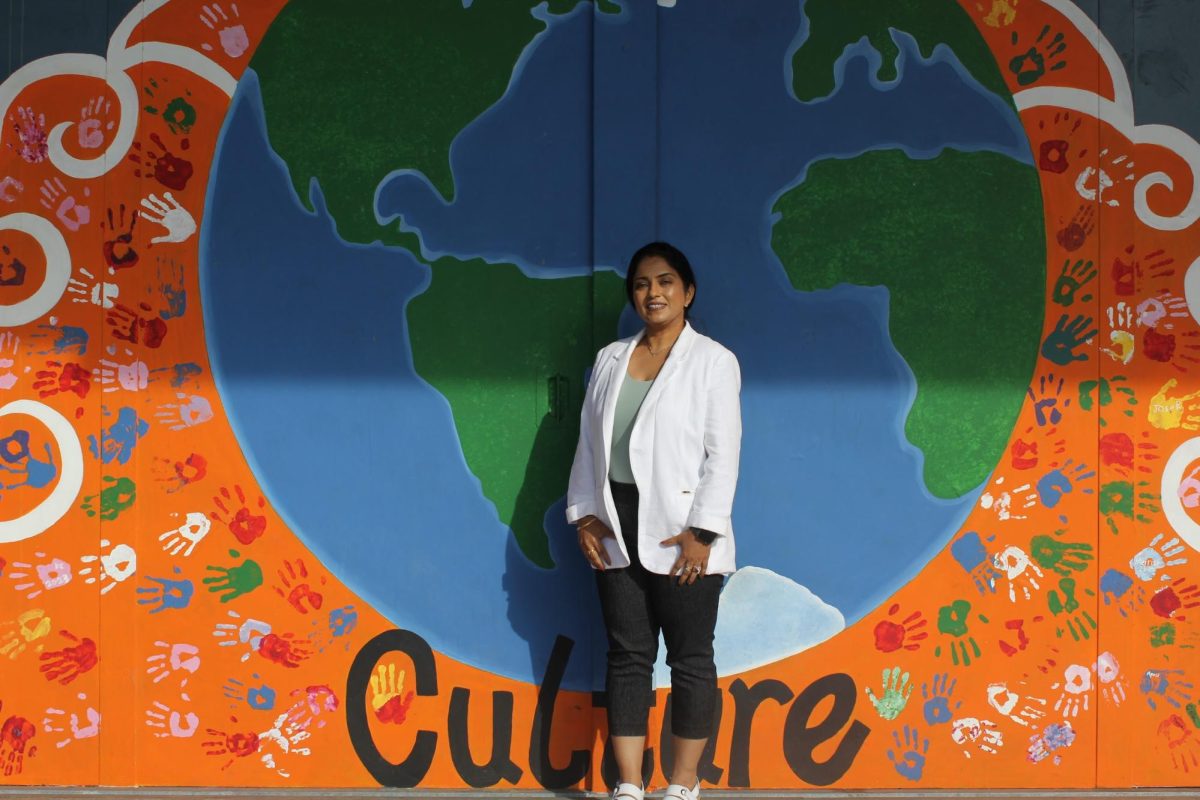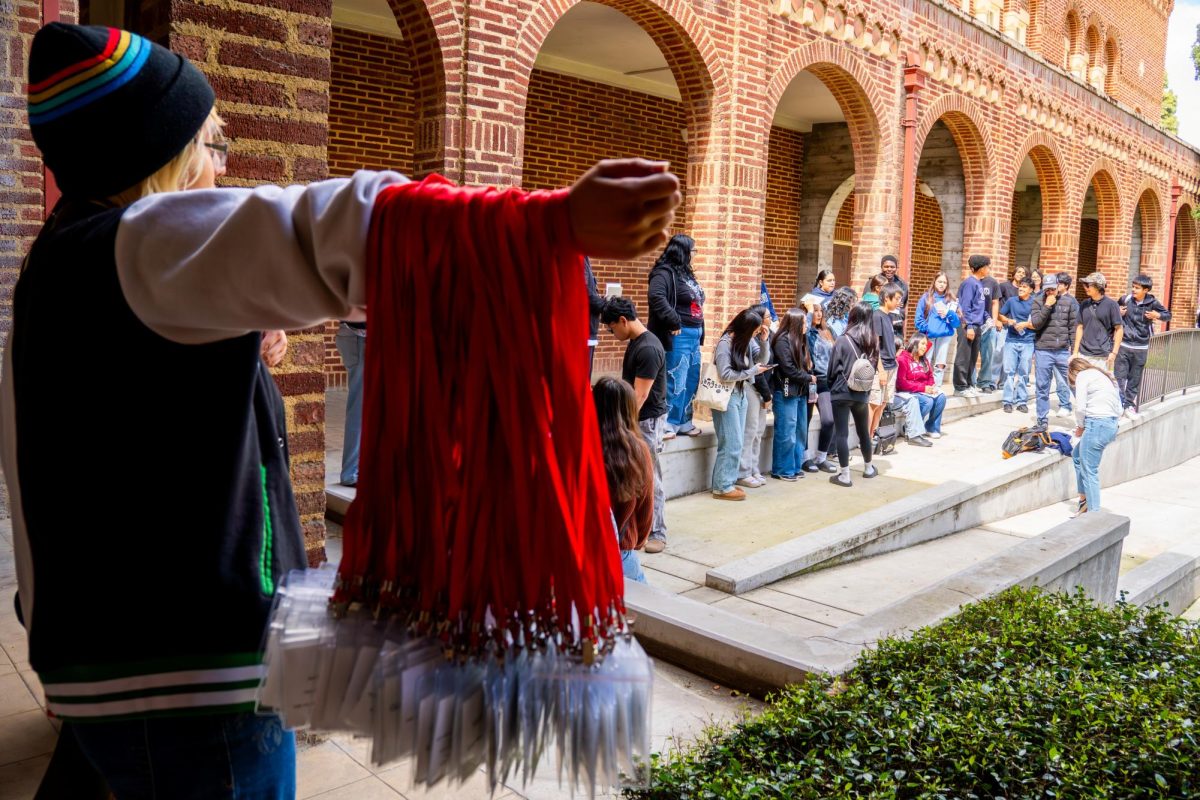As ethnic studies courses become general education requirements, the Cultural and Women’s Studies Department at Fresno City College is struggling to balance increased enrollment with the current amount of full-time faculty and misconceptions about the program at large.
This all began in 2020 when California Governor Gavin Newsom signed Assembly Bill 1460, legislation requiring all California State University students to take at least one semester-long ethnic studies course to graduate.
This legislation became known as Area F, and now California community colleges are expected to provide the ethnic studies courses students need to prepare them for transfer to CSU.
Once this mandate became integrated, Department Chair Matthew Watson devised a new plan for the Cultural and Women’s Studies Department.
To meet the core competencies of Area F, the ethnic studies classes were forced to change. American Pluralism was replaced with Introduction to Ethnic Studies, a class that covers the essentials of four racial-ethnic disciplines (Asian American Studies, Native American Studies, Chicano-Latino Studies, and African American Studies).
“The general ethnic studies is meant to be an intro into the four disciplines, but it’s also important in understanding intersectionality at large and progresses the idea of relational ethnic studies over comparative,” Chicano-Latino studies instructor Rigoberta Garcia said.
Intro to Ethnic Studies is no longer team-taught the way American Pluralism was, as that would limit the number of available instructors. Instead, the seven full-time Cultural and Women’s Studies faculty members on campus are expected to teach in-depth courses in one of the four disciplines as well as a section of Intro to Ethnic Studies.
In this spring semester, seven sections of Intro to Ethnic Studies were offered and four of them were taught by Garcia alone. During the upcoming summer, only one Intro course will be offered, and is already at full capacity.
Gena Lew Gong is the lead faculty and only full-time instructor of Asian American Studies. On top of teaching all three Asian American courses this semester, she also teaches at Fresno State and has managed to organize 12 of the 14 on-campus Asian American Month events.
“My head is exploding with all this. It’s not so much organizing the events, which I truly like to do, it’s dealing with the bureaucracy of the campus.” Gong said with a laugh.
Now that students are required to take these ethnic studies courses, there is an added layer of skepticism and disinterest that surrounds their initial impressions. Auguste Kouadio has been teaching African American studies at FCC for 6 years. He said that students often have problematic misconceptions about these courses.
“Students think that we’ll be talking about just critical race theory,” Kouadio said. “But that’s not true, these classes are relevant because they are tied to community engagement and acceptance rather than race issues”
Student Evan Trevino is currently enrolled in Gong’s ethnic studies class, and his initial impressions mirror what Kouadio said.
“I had a jaded view, I thought it was going to be centered around teaching white fragility, white supremacy. Basically, that white people are the antithesis of ethnic experience. But the class isn’t that at all,” Trevino said.
Victoria Benavides is one of the full-time Chicano Latino Studies instructors, and she spoke in an open-ended Chicana Feminism discussion in the Old Administration Building on April 2. She believes that the Intro to Ethnic Studies course leaves room for improvement.
“It’s really hard to create a classroom setting where we unpack the harms of dehumanizing people and at the same time assess learning in multiple-choice tests,” Benavides said after the discussion. “You sit at a table and you look forward with the idea that the teacher has the knowledge and students don’t. Ethnic studies should be a lot more conversational than that, but it’s hard to pull off with our current classroom setup and online.”
Koaudio confirmed that Intro to Ethnic Studies is still undergoing “an experimental phase, two years in.”
The California State Board of Education is also working to adopt an ethnic studies curriculum in accordance with Assembly Bill 101. The bill established expectations that schools with students in grades 9 to 12 will offer at least one-semester course in ethnic studies beginning in the 2025-2026 school year. This one-semester course will become a high school graduation requirement by 2029-2030.
Benavides said that dual enrollment classes at FCC are reserved only for high school students, even if FCC students need to attend the course to graduate. This implies that even more ethnic studies course sections will likely be taught on campus in 2025, enhancing the need for ethnic studies faculty.
FCC has a long history of teaching ethnic studies, but the demand for classes has never been so high, according to Department Chair Matthew Watson. Students take these courses for granted, as there was a time when they weren’t so accessible.
Eighteen years ago, Matthew Espinoza Watson joined the FCC faculty as a part-time instructor of the Chicano Latino Studies program. Watson said FCC was one of the only community colleges in California to have an ethnic studies course of any kind in 2005, with roots tracing back as early as 1968.
In 2011, Watson became a full-time instructor of Chicano-Latino Studies, taking over for the previous faculty coordinator of 38 years, Art Amado. Karla Kirk, the current African-American Studies instructor, replaced Kehinde Solwazi at the same time.
Together, the two faculty spearheaded the progression of four racial-ethnic course disciplines as well as American Pluralism.
“American Pluralism was a team-taught social science class about race, ethnicity, discrimination, and prejudice. There was one main instructor, but guest historians, psychologists, sociologists, and instructors would visit and give their insights,” Watson said.
American Pluralism was offered at FCC for 10 years, and active enrollment slowly dwindled so only one section of American Pluralism was offered each semester. Coupled with the COVID-19 pandemic, ethnic studies just weren’t getting much attention.
Although the current ethnic studies courses are at full capacity with at least 30 to 40 students per class, it’s an improvement over the low enrollment and limited course sections of FCC’s past.
Chazz Galvan, a student of African American Studies, acknowledges Kouadio as his favorite professor at Fresno City College.
“He’s encouraged me to do great things in my work, and you can see that he has a real passion for what he’s saying. Even when we talk about the more graphic and personal impacts of racism, it seems like he’s always in the mood to meet someone new,” Galvan said.

